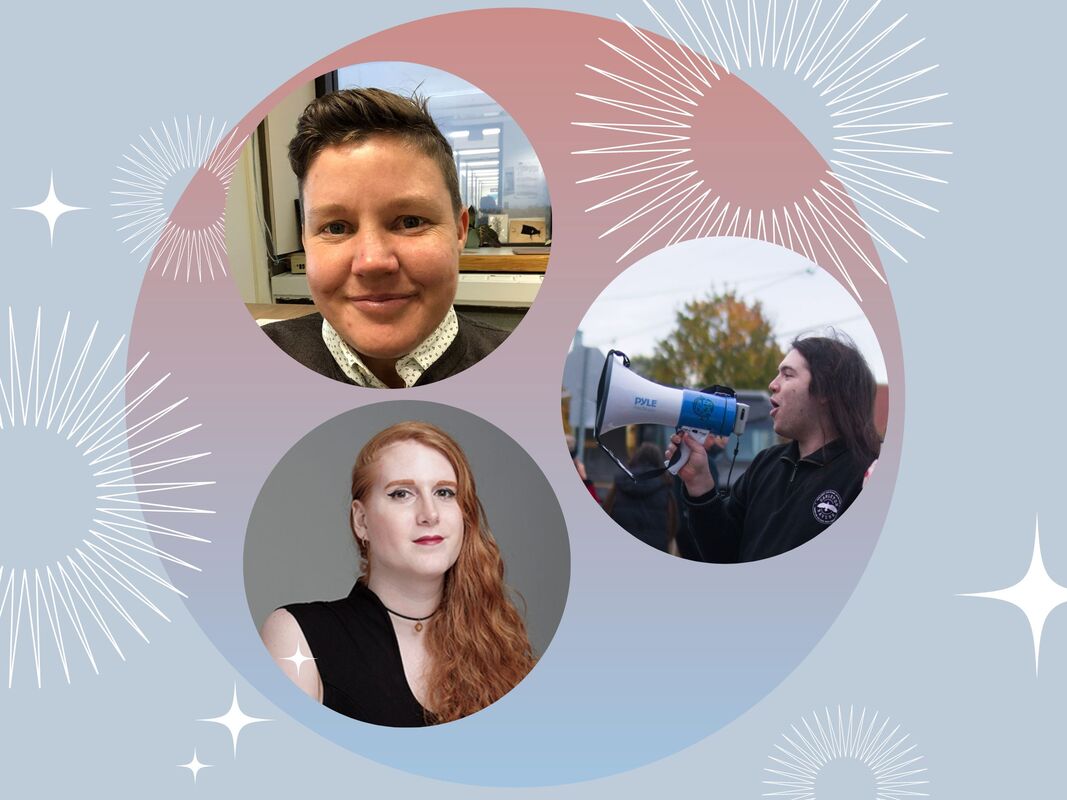|
Angel Xing, CHAIM Centre Communications and Strategy Intern "There are so many barriers that queer and trans people face in getting access to health, so to say that the healthcare system is working well isn't right," says Dr. Julia Sinclair-Palm, a sociology professor at Carleton University.
Over the summer, the CHAIM Centre released its first CHAIM Chats series discussing queer and trans experiences in Canada's health system. The three episodes focus on specific barriers faced by the trans community in accessing healthcare. A 2021 article published in the Canadian Medical Association Journal found that LGBTQ+ communities still experience health inequities. Trans and non-binary people report that they often experience unmet needs or delays in receiving care. According to Dr. Sinclair-Palm, one barrier to health is the expectation for trans patients to align their gender presentation with the binary. "Medical professionals want a singular story about their transness," she says. "But it excludes non-binary, genderqueer and folks who don't present their gender in a binary way." Dr. Sinclair-Palm says trans patients are often expected to prove that they are trans to their healthcare professional to receive the care they need. "Trans folk are smart and good at navigating those terrible health systems. They've learned that they have to tell a particular story," they say. "But there's no singular queer or trans experience. There is no singular way to be trans, and when we other or cast trans folks as 'different,' we limit the understanding of the complexities of their lives," Dr. Sinclair-Palm says. Christian Wright, Rainbow Ottawa Student Experience (ROSE)'s lead coordinator, adds that the trans community is frequently mistreated in healthcare. They can be misgendered, asked inappropriate questions, called the wrong name and experience stereotypical assumptions. "People are afraid of going into these environments on top of the fact that accessing trans-specific healthcare is an incredibly frustrating and long process," Wright says. Another significant barrier to healthcare is the wait time. "Just to get an intake appointment at the premiere trans healthcare providing place in Ottawa, Centretown Community Health Center, is a two-year waitlist," Wright says. Then there is the wait time for actually receiving HRT or surgery. "Once they enter the door, there's another host of barriers," Dr. Sinclair-Palm says. "If they're seen as 'too mentally unstable,' they aren't granted access to the care they want. They're told they need to address those other issues when often, someone might be depressed or struggling because of the discrimination and violence they face." Florence Ashley, a transfeminine bioethicist and jurist, says that the healthcare system does not support the trans community. They researched how medical professionals often take the authority in determining if their patients are trans and if they need hormone replacement therapy (HRT) independent of their patient's wishes. "While science can be used to afford some degree of gender affirmation, it was also just as often used to limit it and expand medical power," they say. "The experts position themselves and accept their roles as authorities in accessing the child's gender and who is really trans." Ashley said they noticed in decisions before the court about parental behaviour towards trans youth that the medical professionals speak on behalf of the child. "They were the ones positioned as the spokesperson for the child to relate the 'true' views of the child," they say. However, when speaking for the child, Ashley says the experts would use ambiguous terms like "based on the child's feelings" so they can draw conclusions themselves. "Being trans is something that shouldn't be within the sphere of authority of doctors," Ashley says. "It's not their business in the first place to determine who is trans and who isn't." "It's harmful because it challenges trans people's fundamental self-knowledge about who they are." Wright says the authority of medicine in someone's trans identity also relates to transmedicalism, the idea that being transgender means medically transitioning to resolve gender dysphoria, which is psychological distress due to a mismatch between the gender assigned at birth and gender identity. Wright says, fortunately, the model of gender-affirming care is growing. Ashley adds that an Informed Consent Model (ICM) decenters clinical assessment, focusing on the client which removes the requirement to prove their gender identity to receive care. According to the Institute of Gender and Health, the ICM would does not evaluate if a person is trans; instead, it focuses on the decision-making process and ensuring that the patient understands the risks and benefits of HRT. Unfortunately, Ashley says ICM is limited by a lack of time. "We're in a consumerist medical system where doctors rarely get to have more than 15 to 30 minutes with you," they say. It is difficult to deeply discuss decision-making in a short session. Wright says this can be improved if healthcare professionals at the first access point, like family doctors, are more educated about trans health. Learning about trans health shouldn't be an additional and separate piece from cisgender health. "We need doctors who are preparing to be care providers and family physicians to be educated about HRT and options for surgery referrals," they say. "There need to be more resources put into creating a system which allows trans people to participate as fully as cis people do, from navigation to advocacy to support."
0 Comments
Leave a Reply. |
Archives
March 2023
Categories
All
|


 RSS Feed
RSS Feed